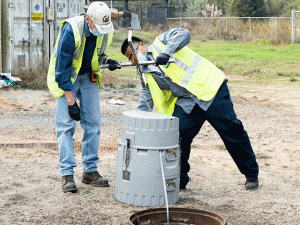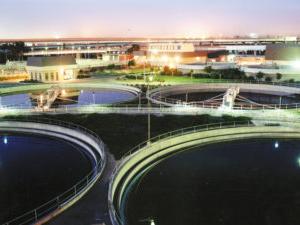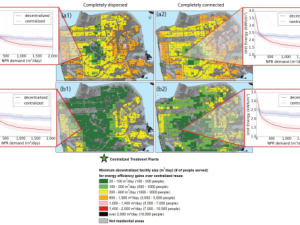

Research Bio
Dr. Kara Nelson is the Blum Chancellor's Chair in Development Engineering and a Professor of Civil and Environmental Engineering. In her research program, Prof. Nelson aims to develop innovative technologies and accelerate the adoption of environmentally sustainable and socially equitable water infrastructure and practices around the globe. Specific areas of research include intermittent water supply, wastewater-based epidemiology, water reuse, disinfection, nutrient recovery, and improved sanitation. She teaches courses on innovation in the water sector, drinking water and wastewater treatment processes, pathogen detection and inactivation, and natural treatment systems, taking into consideration the wide range of contexts that exist in low to high-resource communities. Nelson is the recipient of the Chancellor’s Public Service Award for Campus Community Partnership, a Fulbright Fellowship, and the National Science Foundation PECASE Award. Prof. Nelson is passionate about creating a climate in which everyone belongs and can reach their full potential, and previously served as Associate Dean for Equity and Inclusion in the College of Engineering.
Prof. Nelson also serves as the Associate Director of Development Engineering at the Blum Center for Developing Economies, which offers the Designated Emphasis in Development Engineering and the Professional Masters Degree in Development Engineering. She is currently the President of the Association of Environmental Engineering and Science Professors (AEESP). From 2011-2022, Nelson held multiple leadership positions in the National Science Foundation Engineering Research Center for Re-inventing our Nation’s Urban Water Infrastructure (ReNUWIt).
Research Expertise and Interest
wastewater based epidemiology, water and wastewater treatment, water reuse, detection and inactivation of pathogens in water and sludge, appropriate technologies
In the News
UC Berkeley launches pop-up lab to monitor Bay Area sewage for COVID-19
Monitoring COVID-19 prevalence in municipal wastewater
UC Berkeley Leads New Assessment of Bay Area Climate Impacts
Olga Kavvada, lead-author of ES&T article
Featured in the Media
The COVID-19 virus can be picked up in wastewater before it's found in a clinical setting and researchers in a new study say this could be really useful for tracking new mutations of the virus, like the B.1.17 strain that is now widespread in the U.K. and has already been introduced in the U.S. "SARS CoV-2 virus is excreted by individuals that are infected by COVID-19 and the fecal waste ends up in the wastewater systems. By sampling wastewater, we can get information on infections for a whole population. Some wastewater systems serve several thousand people. Some serve hundreds of thousands of people," explained the study's lead author Kara Nelson, from the College of Engineering at the University of California, Berkeley. For more on this, see our press release at Berkeley News.




